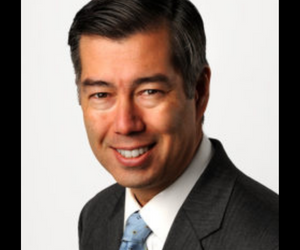Volatile Markets? Try Non-Correlated Investments
At a recent meeting of the Ritossa Family Office Summit in Dubai, Jagdeesh Prakasam said something that caught the attention of the several hundred investors who were listening to him.
He said that by using artificial intelligence and machine-based learning, his company has been able to capture some uniquely important inefficiencies in the financial markets. The result?
Achieving Positive Returns in Volatile Markets
The company where Prakasam is Co-Chief Investment Officer, Rotella Capital Management, has been able to achieve positive returns in both up markets and down ones as well.
“In the last 26 years,” Prakasam told his audience, “we’ve had a track record of double digit uncorrelated returns through some of the most challenging market environments. This includes consistent absolute returns during times of crisis for traditional asset classes.”
He went to point to a revealing graph of some of the world financial crises in the last 20 years. Whether it was the Russian Financial Crisis in 1998, or the Dot.Com Bubble of 2002, or the Financial Crisis of 2009, or Brexit in 2016, when the US Stock market tumbled, Rotella’s investments went up.
So how does he go about finding the non-correlated investments that makes this kind of performance possible?
Rotella’s COO Ian Ram added, “We use a high tech, artificial-intelligence, machine-learning approach to complement our more traditional technical and statistical models. We have 13 research scientists, 10 senior technologists, and 20 other skilled personnel. These individuals include men and women with advanced degrees in physics, engineering, mathematic and financial engineering.”
But that’s only part of his secret sauce. “What we do is an intersection of art and science. The art part is, we begin with intuitive but highly-informed hypotheses and then we test the hypotheses. As part of the testing, we apply sophisticated scientific and mathematical approaches.”
Where Is It All Leading?
When quantitative easing ended in 2014, Prakasam’s colleague, Robert Rotella, knew that among the many implications of ending the six-year $4.5 trillion program, is that the U.S. Government would no longer be supporting the American stock market. This was likely to lead to volatility.
Ending similar liquidity-enhancing programs, whether in Europe or Japan, would also have large implications. After all, when quantitative easing isn’t in effect, it’s typical to have corrections of 10% or 15% in the stock market. Under normal circumstances, these may happen a couple of times a year.
However, during the period from 2008 to 2014, this kind of volatility wasn’t allowed to happen. This meant that for at least six years, investors didn’t have to worry that one of these market drops would happen. They didn’t have to worry about needing liquidity at a time when the market is down.
Today conditions have changed. Rotella’s premise is that investors who need less volatility need more non-correlated investments. He and his colleagues at Rotella put their enormous intellectual and technical resources into discovering investments that do well independently of the stock market’s roller coaster ride.
If you’d like to know more about Rotella Capital Management’s alternative asset approach, contact: investments@rotellacapital.com
Mitzi Perdue is a professional public speaker who talks on family business. Contact her at: mitzi@mitziperdue.com.
Search Articles
Latest Articles
A Breakthrough in Schizophrenia Treatment
https://foreignpress.org/journalism-resources/a-breakthrough-in-schizophrenia-treatment Publication –foreignpress.org
Ukraine’s Rare Metals Offer Rare Opportunities
https://www.wealthmanagement.com/alternative-investments/ukraines-rare-metals-offer-rare-opportunities Publication –wealthmanagement.com
Putin Resorts to Financial Smoke and Mirrors
https://cepa.org/article/putin-resorts-to-financial-smoke-and-mirrors/ Publication –cepa.org
Putin’s Weak Hand
https://cepa.org/article/putins-weak-hand/ Publication –cepa.org
Subscribe to Updates
About Author

Mitzi Perdue is the widow of the poultry magnate, Frank Perdue. She’s the author of How To Make Your Family Business Last and 52 Tips to Combat Human Trafficking. Contact her at www.MitziPerdue.com
All Articles
A System for Finding Family Business Blind Spots
A System for Finding Family Business Blind SpotsThe Rosy Periwinkle The rosy periwinkle doesn’t look like a plant that’s worth $200 million a year. Except that its flowers are pink, it resembles the blue periwinkle commonly used as ground cover. To the desperate...
My Favorite Post for This Year! Carmen, the Beautiful Carmen
My Favorite Post for This Year! Carmen, the Beautiful CarmenFor a peek inside the fecund mind of legendary hedge fund manager Roy Niederhoffer, come take a look at his analysis of the opera Carmen. Guaranteed, you’ll never before have seen such an original take on the...
A New Way to Engage Next Gens in the Family Business
A New Way to Engage Next Gens in the Family BusinessWhat if Facebook met LinkedIn and decided to have a Family Business baby? In Esrock’s view, people in family businesses have a need for the kinds of information and encouragement that are unique to members of family...
A Not-Secret Sauce for Investing
A Not-Secret Sauce for InvestingYou would think that doing business in Brazil would be an above-average risk proposition, right? Well maybe. But Matthew Wilkens has seen a truly impressive not-so-secret sauce that creates a spectacular exception. Even better, since...
Is the Stock Market Long-in-the-Tooth?
Is the Stock Market Long-in-the-Tooth?Is the current market long-in-the-tooth? Should you pull back because it’s unreasonable to expect the market to keep on reaching new highs? “Not necessarily,” answers Eric Uchida Henderson, CFA and Chief Investment Officer of...
A Contrarian Investment that Could Be Just Right for You
A Contrarian Investment that Could Be Just Right for YouSuppose for a moment that you’re an investor. Not just any investor. In this case you are Peter Hughes. You are a real person, although in fact Hughes is not your real name. Here’s what’s going on with you,...





